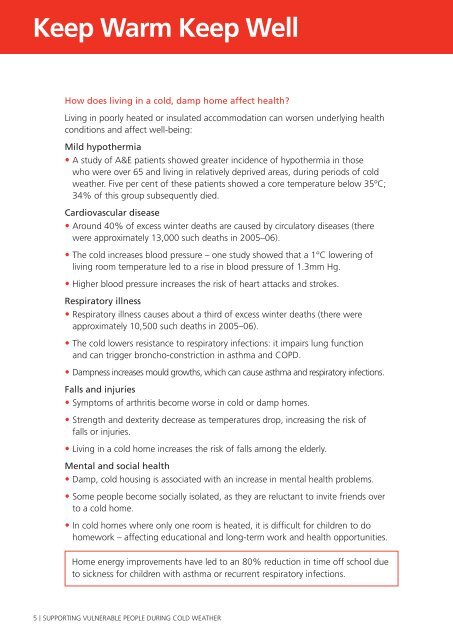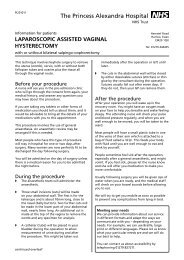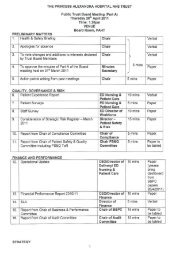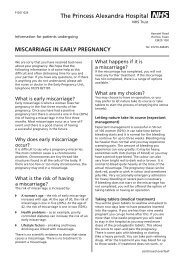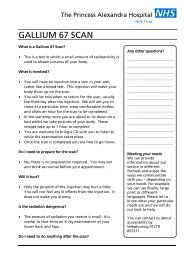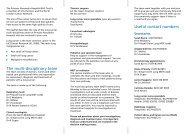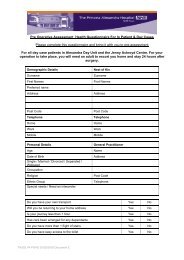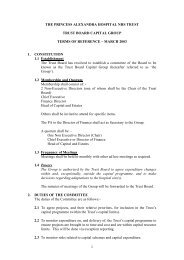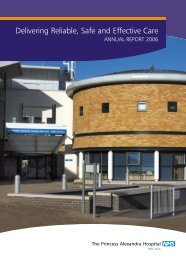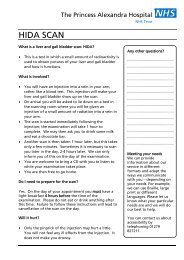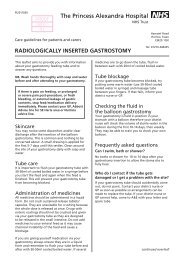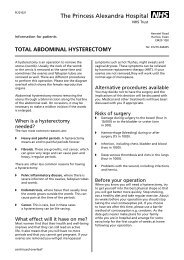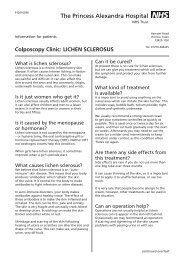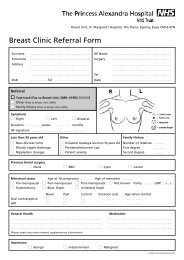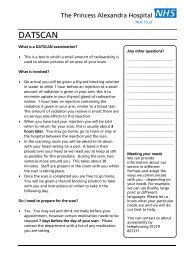Keep Warm Keep Well
Keep Warm Keep Well
Keep Warm Keep Well
You also want an ePaper? Increase the reach of your titles
YUMPU automatically turns print PDFs into web optimized ePapers that Google loves.
<strong>Keep</strong> <strong>Warm</strong> <strong>Keep</strong> <strong>Well</strong><br />
How does living in a cold, damp home affect health?<br />
Living in poorly heated or insulated accommodation can worsen underlying health<br />
conditions and affect well-being:<br />
Mild hypothermia<br />
• A study of A&E patients showed greater incidence of hypothermia in those<br />
who were over 65 and living in relatively deprived areas, during periods of cold<br />
weather. Five per cent of these patients showed a core temperature below 35ºC;<br />
34% of this group subsequently died.<br />
Cardiovascular disease<br />
• Around 40% of excess winter deaths are caused by circulatory diseases (there<br />
were approximately 13,000 such deaths in 2005–06).<br />
• The cold increases blood pressure – one study showed that a 1°C lowering of<br />
living room temperature led to a rise in blood pressure of 1.3mm Hg.<br />
• Higher blood pressure increases the risk of heart attacks and strokes.<br />
Respiratory illness<br />
• Respiratory illness causes about a third of excess winter deaths (there were<br />
approximately 10,500 such deaths in 2005–06).<br />
• The cold lowers resistance to respiratory infections: it impairs lung function<br />
and can trigger broncho-constriction in asthma and COPD.<br />
• Dampness increases mould growths, which can cause asthma and respiratory infections.<br />
Falls and injuries<br />
• Symptoms of arthritis become worse in cold or damp homes.<br />
• Strength and dexterity decrease as temperatures drop, increasing the risk of<br />
falls or injuries.<br />
• Living in a cold home increases the risk of falls among the elderly.<br />
Mental and social health<br />
• Damp, cold housing is associated with an increase in mental health problems.<br />
• Some people become socially isolated, as they are reluctant to invite friends over<br />
to a cold home.<br />
• In cold homes where only one room is heated, it is difficult for children to do<br />
homework – affecting educational and long-term work and health opportunities.<br />
Home energy improvements have led to an 80% reduction in time off school due<br />
to sickness for children with asthma or recurrent respiratory infections.<br />
5 | SUPPORTING VULNERABLE PEOPLE DURING COLD WEATHER


